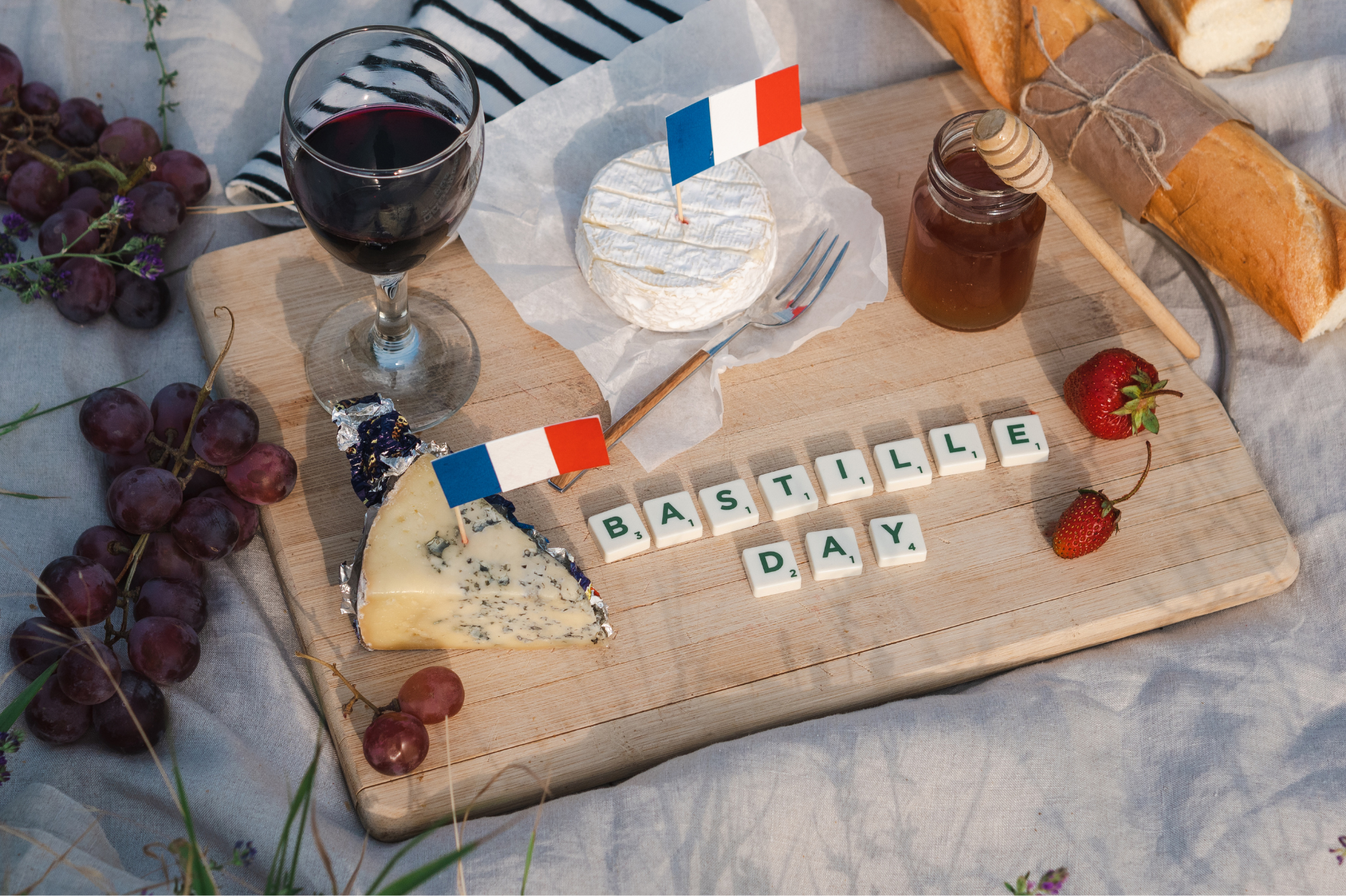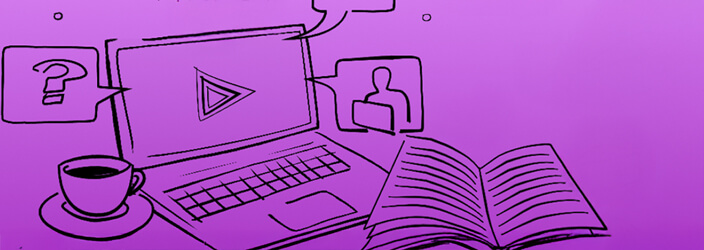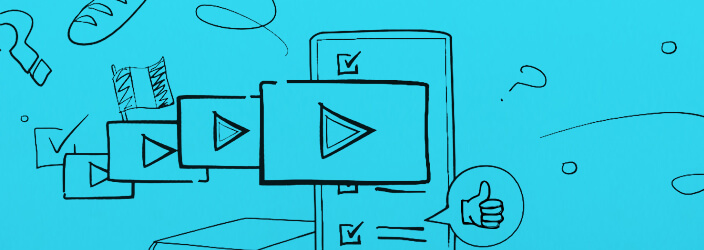The quickest way to learn French
How quickly can you learn French? It’s a question we get asked a lot, and the answer depends on how you define learning French.
If your goal is to be completely fluent, then it can take years of dedicated learning. If your goal is to know every word in the French language, that may even take a lifetime (or nine weeks if you're a Scrabble champion) - but even French natives can't boast that level of French proficiency.
If, on the other hand, you want to achieve a basic grasp of French, enough to get around on holiday, say, or understand what your French work colleagues are chatting about, then you can learn the basics in the ten minutes it'll take you to read to the bottom of this page.
Here's everything you need to master the basics.
Essential French phrases
It might seem counterintuitive to learn phrases before individual words. But you can convey a wealth of information with just a few useful common phrases that you often can't convey with words.
Bonjour - Hello
(Passez une) Bonne journée - Have a good day (usually at the end of an interaction)
Au revoir - Goodbye
Je m'appelle - My name is
Comment tu t'appelles ? - What is your name?
Merci (beaucoup) - Thank you (very much)
De rien ! - You're welcome!
Pardon - Excuse me
Excusez-moi - Excuse me
Est-ce que vous parlez anglais ? - Do you speak English?
Où se trouvent les toilettes ? - Where is the bathroom?
For more important phrases, be sure to check out our blog '20 common French phrases'.
It's likely you already know some key French phrases, since we already use so many of them in English.
There are also a number of French idioms which you may find useful to learn. Idioms are phrases where the meaning is different from what is actually being said, which means that even if you’re fluent you may not understand what idioms mean without learning them beforehand. It's a good idea to learn a few of these early on to avoid being caught out when hearing them in conversation.
As in any language, there are lots of idioms in French, but why not start with just the ones that use tout.
Vocabulary
You won't get anywhere in French without having at least a few useful words up your sleeve. It's estimated that you need to know 5,000 words to be fully conversational, but knowing as few as 2,000 is enough to get around and speak - and understand - basic French.
A good idea is to start by learning the most common words in French. But it can be difficult to commit words to memory when you're learning them out of context. That's why we've put together some of our most effective strategies for learning vocabulary, which you can check out on our blog.
Learning words in context however is one of the best ways to remember vocabulary as you encounter it. The vocabulary lists on the Learn French With Alexa website are perfect for this. Separated into different categories as diverse as cinema and sea creatures, they provide concentrated lists complete with quizzes and support guides. Meanwhile, our verb lists provide the same function but for verbs, showing you all the different conjugations.
Grammar
Speaking of conjugations, if you want to be able to speak French, there's no way of getting around the G word: grammar.
Grammar can be tricky. From tenses to clauses, you'll need to understand how different aspects of grammar are used and what they do. The good news is that if you start with the basics, you’ll be able to understand 80% of the French phrases and sentences you come across. And once you've mastered the basics, you'll have the building blocks necessary to tackle the remaining 20%.
For instance, relative pronouns become a lot easier when you already know regular pronouns like the back of your hand, while tenses such as plus-que-parfait or the futur antérieur are actually made from other, simpler tenses.
Grammar encompasses a lot, but for now let's focus on two main aspects: word types and conjugations.
Word types are the different kinds of word you'll encounter: nouns, pronouns, adjectives, adverbs and so on. Understanding the type of word you learn is important. If it's a noun, for instance, then it's a good idea to learn its gender (remember also to learn the correct article alongside it). If it's an adjective, then it's worth checking if it's the kind that comes before or after a noun.
Conjugations are the different forms of a verb according to its tense, mood and person. For English speakers, conjugations can be the most challenging aspect of French to get your head round. When we conjugate a verb in English, the form usually doesn't change that much, if at all, whereas in French, each verb has dozens of different lemmas - forms - according to the way it is conjugated. Dividing them into the three different verb groups - -er, -ir and irregular - makes it easier. For more on the different verb groups, and a section of common verbs for each group, see our blog on the subject.
There are other aspects to grammar, too, but luckily many of these are similar, if not the same, as in English. French sentence order for example is often identical to the sentence order we use in English - with a few key differences, such as when it comes to asking questions or using object pronouns. Likewise, punctuation is largely the same in both languages, but again there are exceptions. In French, for instance, we leave a space before using exclamation and question marks, and we use guillemets instead of inverted commas to denote speech marks, as in the following example:
<<Excusez-moi !>>
Understand French culture
It becomes a lot easier to understand how French is spoken - as well as what French people speak about - when you have a greater understanding of French culture. It will also provide you with a repertoire of topics to discuss that any French native will be able to talk about - from public holidays to popular French foods. Learning French jokes and puns can also help you acclimatise to the French sense of humour!
Here are a few suggestions for topics to introduce yourself to French culture and get the ball rolling in conversations:
Of course, it's not only in France that French is spoken. Here are some blogs on other French-speaking cultures:
Find the right learning strategy for you
There's more than one way to learn French, and different learners find different strategies more effective than others. Are you someone who absorbs information best when it's in the background? Then passive learning might be the strategy for you. This involves doing all the activities you would usually do - listening to music and radio, watching TV, reading books - but in French. The more you do it, the more comfortable you'll get with French, and the more readily the language will come to you, until speaking it is second nature.
Or perhaps you prefer to learn with a partner? In which case, buddying up with a friend is a fantastic way to spur one another on and share your tips and findings as you progress towards fluency. It's a great way to practise speaking, listening and general conversation skills. One of the best ways to get speaking practice is to sign up to our Speaking Practice Sessions, which are designed to help you grow in confidence as a French speaker and put what you've learned from the Complete French Course into practice. For learners looking to practise speaking in a more organic, relaxed manner, our Conversation Club is a dedicated space where you can practise everyday French conversations with other learners and the helpful guidance of an expert French teacher.
Conversation Club, a dedicated space where you can practise speaking French in a relaxed, organic manner with other learners and the helpful guidance of an expert French teacher. For more focused lessons, meanwhile, our Speaking Practice Sessions are designed to help you grow in confidence as a French speaker and put what you've learned from the Complete French Course into practice.
Of course, you can't go wrong with simply following a structured course. Alexa's Complete French Course takes learners from A1 level (beginner) to C2 (proficiency) of the CEFR over the course of 40 in-depth video lessons. Comprising additional content including support guides, quizzes, graded end-of-unit assessments and exclusive access to monthly live lessons, this CPD-accredited course covers everything you need to know to speak French at an advanced level.
It's worth trying each of these to understand what works for you. You may find a combination of all is what helps you progress the most. Utilising a mixture of different resources - such as YouTube, podcasts and even social media - is also a good way to diversify your learning.
Our French courses
People all over the world are learning French online with Alexa Polidoro










